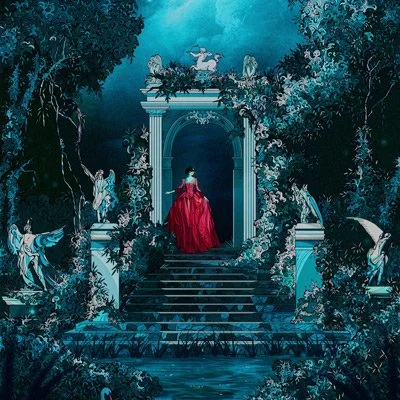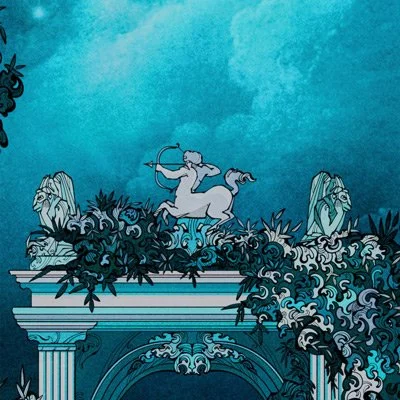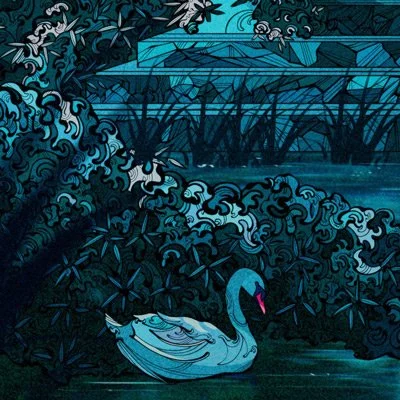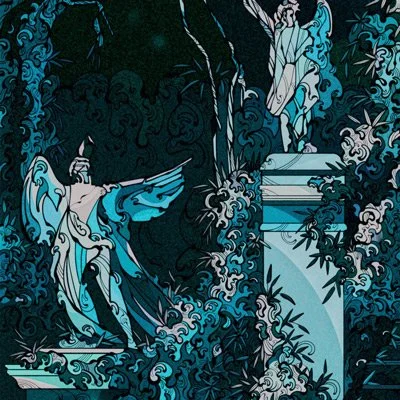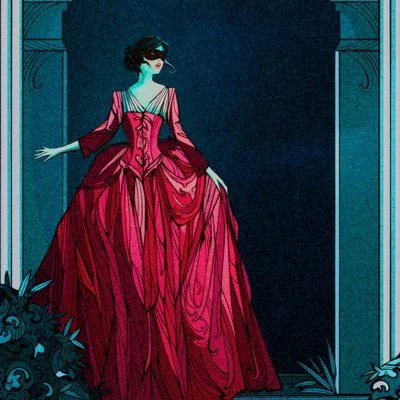She could not say how she had come upon the gate, whether by memory, or misstep, or some instinct older than thought, only that it had not appeared so much as yielded itself, as though the sunny earth above had grown weary of its concealment.
It rose pale from the roots of things, its stonework entwined with ivy, bowed and crumbling beneath the burden of years too long unrecorded. Overhead stretched a sky the hue of frayed mourning silk, threadbare in places, like grief worn thin from too much folding.
No voice stirred in the air, no omen nor beckoning breeze. Only a hush, not of welcome, but of long held resignation, hung about the place, as though it had foreseen her arrival and chosen silence as its answer.
She stepped forward not as guest, nor as trespasser, but as one startled to find herself returned to the site of something once dismissed as dream. There was no awe in her movements, only the solemn unease of one reacquainted with a truth they once labored to forget.
What shifted within her did so without violence. There was no fracture, no revelation, only the slow and silent ache of a shape resuming its form, like a long-buried thought rising to the surface unbidden. Her hands, slender once and now bent like claws, faintly luminescent against the dusk, did not feel her own. Her skin bore the pallor of blue stone, cool and fragile, as though the body itself were borrowed, a guise stitched together by the strange air of this place.
She moved as one walks the nave of a cathedral overrun by time, where rot clings to stone and every echo feels too sacred to disturb. The garden did not greet her. It endured, mute, breathless, and steeped in memory.
Statues flanked the path, their features effaced not by time, but by sorrow too immense to sculpt. They did not stand in worship, nor in defiance, but in the posture of those who have seen too much and borne it in stillness. Their shame was not hers, and yet she felt it settle in her like something long carried beneath another name.
Among them crouched the gargoyles, softened, not savage, their menace long since washed away. They did not follow her with their eyes, and yet she felt them. Not as witnesses. As mirrors. They did not know her face, and yet they knew her fear.
She did not hasten, nor did she halt. Each step drew her further into the shape of someone she had long outgrown. This was not progress. It was return.
High above the arch, the archer was carved in tension, bow drawn, gaze lifted, the line between movement and stillness held as tightly as the string between his fingers. He did not threaten. He did not guard.
He simply existed, as if cast from the same stars that had marked her since birth. He was no omen, no oracle, but the figure of a fate inscribed before language, the myth she had been born beneath, the arrow loosed not to wound, but to reveal. He was not the cause of her coming, nor the reason for her staying. He was the shape of her becoming, rendered in stone.
It was not a doorway to something new, but the threshold of what could no longer be outrun.
Behind her, the path dissolved into shadow, as though it had never been.
And still, she did not turn back.
For what is grief, if not the moment we come to know that nothing we love is ever truly ours, only borrowed, and always fated to be returned.
